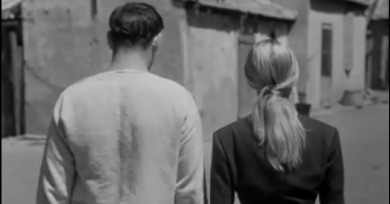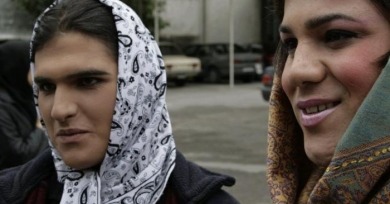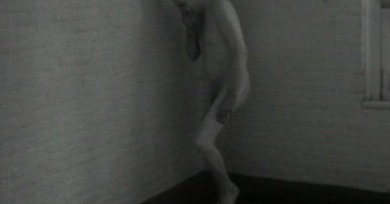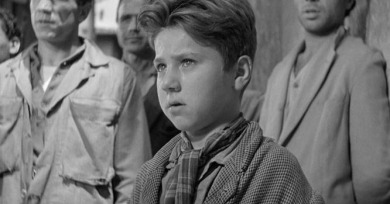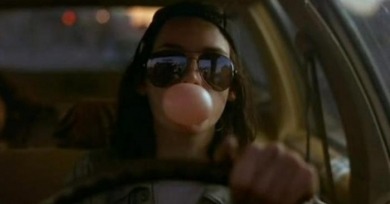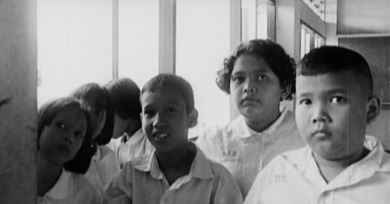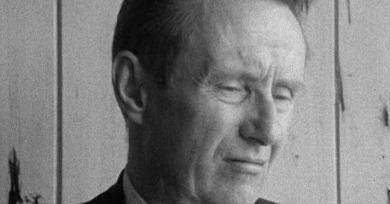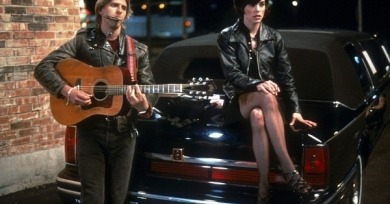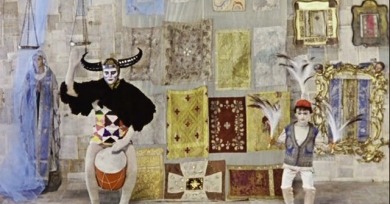Joanne Kouyoumjian
Though Varda already was a highly experienced photographer and thus no stranger to the art of image-making, her lack of cinephile knowledge at this early period in her life helps make La Pointe Courte not only authentically personal but also singular.
Eshaghian’s account of the current situation regarding sexual reassignment surgery in Iran is posed from a complex stance in which this procedure is not uniquely Islamic or even religious, but rather stems from a larger history of medical sciences and constructions of homosexuality and gender “confusion” as pathology.
Throughout Julie Taymor’s new musical, Across the Universe, I couldn’t help thinking how much it resembled a Mad magazine column: “The Lighter Side of the Sixties,” anyone?
No film had ever so fully and deeply disturbed me. For a few days, I became restless, unable to erase from my memory the images of humiliation and degradation I had witnessed.
Ever since the heyday of Italian neorealism—the post-facist, postwar films of the forties and fifties—nothing in European cinema has come close in depicting daily life and the struggles of those most abused and neglected by the larger society.
Jarmusch’s film, with its cheap stock characters, seems flimsy and incoherent, merely a one-off opportunity to combine disparate groups of actors of some international renown and see what happens.
Slacker was nostalgic the moment it was made, expanding on same genre that American Graffiti invented. Mysterious Object at Noon has more immediacy, as we can sense the filmmaker’s presence just off-screen.
It gives us unique access to American public and private spaces alike as they peddle their sacred wares to housewives in rollers, nervously chain-smoking cigarettes and wondering how they will be able to afford the enormous $40 volume before them, complete with full-color illustrations of the stations of the cross.
The America of SubUrbia is insular, separate from the rest of the world and wallowing in self-pity. And the ennui of suburbia has not changed: the 7-11 is still usually the only “public” space in town at which kids can hang out, the big box Wal-Marts and McDonalds still cannibalize the horizon.
Steeped in religious iconography, The Color of Pomegranates is a deeply spiritual testament to director Sergei Parajanov’s fascination with Armenian folk art and culture.
